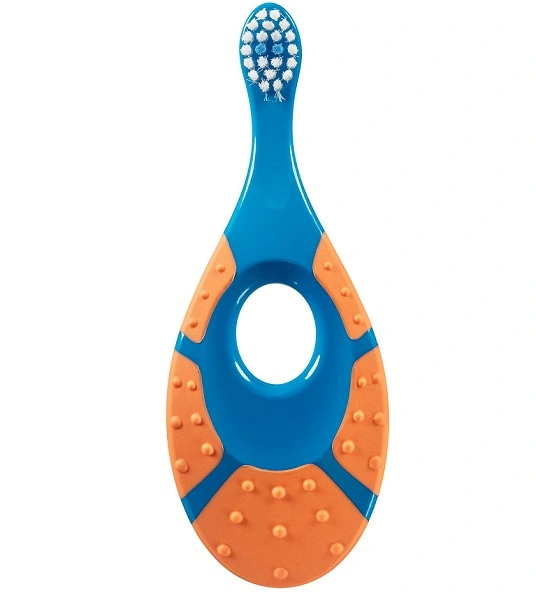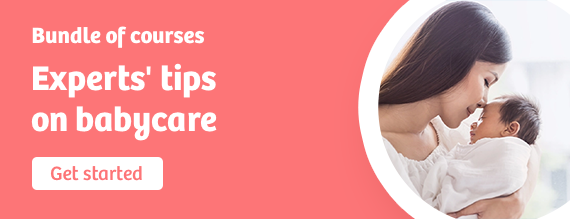Expert tips to care for the baby’s first teeth
Those tiny pearly whites that add a charm to your little one’s smile, need a lot of care. When should we start cleaning the baby’s first teeth? And how? When should the baby see the dentist for the first time? Find out the best advice the dentist can offer on caring for your baby’s teeth.


When should baby teeth be cleaned?
Many parents think they should start with oral hygiene for their children at age two, or six, or even after the first permanent tooth. This perception is wrong. The oral hygiene routine must start before the first tooth appears. Babies must be used to having their mouths cleaned exactly as they get used to having baths and diaper changes. The mouth is the gateway to your child’s body, keeping it clean early on will not only help develop healthy oral hygiene, but will also protect your child from bacteria, and viruses that cause illness.
How to clean the baby’s mouth?
- Use a toothbrush specially made for babies.
Like this toothbrush that also has a teething ring. These toothbrushes have small and soft heads. You can gently clean your baby’s gums using this toothbrush and water. Oral hygiene for babies includes the gentle massage of the gums, cleaning of the inside of the cheeks, and cleaning of the tongue. Cleaning the baby’s tongue is very important, as the baby’s tongue will have milk residue, which if left uncleaned it will cause the growth of the bacteria that will later cause cavities.

Source Jordanoralcare
- Properly brush the teeth
This starts with the appearance of the first teeth between 4 and 6 months of age. The baby’s teeth must be cleaned twice a day, after breakfast and before bedtime. Using the same toothbrush mentioned above and the size of a pea amount of toothpaste, as shown in the illustration below.

How to care for the baby’s teeth
- Oral hygiene
By regularly cleaning the baby’s gums and teeth as mentioned above.
- Diet
When starting solids for babies, who already have teeth, it is very important to give, raw, hard unprocessed, and natural foods. Training the baby to chew well helps develop healthy teeth and jaws. Baby purees are recommended at the early stages of feeding when the babies don’t have teeth yet.
- Healthy habits
It is very important to have a restriction on the use of pacifiers. The babies must not be dependent on it to calm down, and it must not be used for a long time. Pacifiers must be disposed of at the age of two. Excessive use of pacifiers causes deformation of the jaws and can cause an open bite. Open bites affect breathing, the shape of teeth, and even speech.
It is essential not to let the baby sleep with the milk bottle in his mouth, especially after the age of one. This causes severe cavities and deformations. Babies and toddlers should have their teeth cleaned after dinner when the baby can have his last milk serving for the day. If your child wakes up at night, it is very important not to give them milk, and offer water instead. Even breastfeeding at night after age one should cease, as it causes a very common condition known as “Early childhood cavities”.
Avoid processed sugary foods, and have the baby used to the sweetness of fruits. And offer the actual fruit instead of fruit juice as it contains more sugar. Sugary foods negatively impact children’s oral health, and it also causes obesity and weight problems. In addition, it negatively affects the children’s attention span.
When should the baby visit the dentist?
Moms need to bring their babies to the pediatric dentist before their first birthday. Our motto is “Get it done by age one!”. The main goal of this first visit is to establish a dental home, where the child builds a positive rapport with their dentist and gets used to the dental clinic. During this visit, we provide parents guidance and information on their baby’s dental and oral health and check on the baby’s oral health, so it is for prevention rather than treatment.
Also read All you need to know about baby teething






